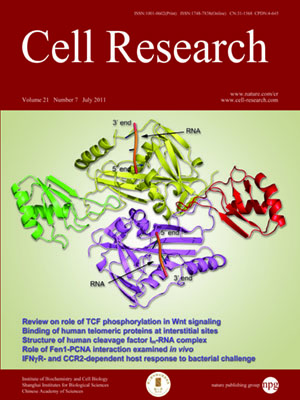
Volume 21, No 7, Jul 2011
ISSN: 1001-0602
EISSN: 1748-7838 2018
impact factor 17.848*
(Clarivate Analytics, 2019)
Volume 21 Issue 7, July 2011: 1002-1012
REVIEWS
Wnt signaling through T-cell factor phosphorylation
Sergei Y Sokol
Department of Developmental and Regenerative Biology, Mount Sinai School of Medicine, New York, NY 10029, USA Correspondence: Sergei Sokol,
Correspondence: Sergei Sokol,(sergei.sokol@mssm.edu)
Embryonic signaling pathways often lead to a switch from default repression to transcriptional activation of target genes. A major consequence of Wnt signaling is stabilization of β-catenin, which associates with T-cell factors (TCFs) and 'converts' them from repressors into transcriptional activators. The molecular mechanisms responsible for this conversion remain poorly understood. Several studies have reported on the regulation of TCF by phosphorylation, yet its physiological significance has been unclear: in some cases it appears to promote target gene activation, in others Wnt-dependent transcription is inhibited. This review focuses on recent progress in the understanding of context-dependent post-translational regulation of TCF function by Wnt signaling.
Cell Research (2011) 21:1002-1012. doi:10.1038/cr.2011.86; published online 24 May 2011
FULL TEXT | PDF
Browse 2055


